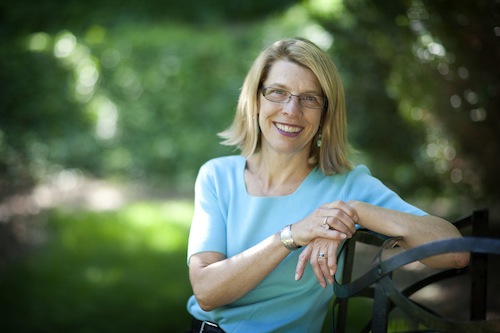

By Tanya Denckla Cobb
The holidays were nearing when I eagerly skipped down the yellow-brick road into Dr. Mehmet Oz's world of "What To Eat Now: The Anti-Food-Snob Diet." His opener -- that "some of the tastiest and healthiest food around is also the least expensive and most ordinary" -- was indisputably welcoming.
Finally, I sighed with relief, our nation's favorite star doctor will set the record straight. Eating healthy food doesn't have to be rocket science. And it doesn't have to be expensive. OK, yes, all the Google-smart news-speak mavens can choose to buy their fresh foods at the most expensive markets and thereby confirm their conspira-stories that healthy, local food is elitist.
But now, finally, we would get the straight dope on how we can eat well without breaking the bank.
I happily entered Dr. Oz's world of bright and colorful frozen green peas and carrots. I read that we can enjoy some of our favorite foods -- tacos, peanut butter, salsa and guacamole -- and we can also "eat frozen and never feel that you are shortchanging yourself." Hallelujah!
But when Dr. Oz said "organic is great, it's just not very democratic," I stopped skipping. What he means by organic is revealed in his next sentence: "truffle oil, European cheeses and heirloom tomatoes." No mention of everyday organic foods like apples, peas, carrots, beans. A bit later he confesses that he's doing a "public-health service" to folks who are "alienated and dejected" because "the marketing of healthy foods too often blurs into elitism." His public health service includes telling us there is no difference between organic and conventional foods. "An egg is an egg," he says. What's more, there's "not much difference between, say, grass-fed beef and the feedlot variety."
Let me get this straight: Organic is not democratic because ... not everyone can afford truffle oil or European cheeses? The only organic food is the kind he shops for? Following that logic, if the only British car I bought was a Rolls-Royce, I could soundly conclude that British cars are not democratic because not everyone can afford a Rolls. That is, of course, ridiculous.
A real public health service from Oz would be giving devotees the low-down on organic: telling them that eating organic doesn't mean buying truffle oil. Eating organic can mean consuming affordable, common foods. And eating organic can mean eating more nutritious food. This is where I get to thank Wal-Mart, which, like Dr. Oz, positions itself as serving the common person. Last November, Wal-Mart's Economic Customer Insights Report announced that its "natural and organic food sales are growing almost twice as much as traditional food products." This is not truffle oil. This is everyday organic and affordable food.
A real public health service was this recent study, "Is Local Food Affordable to Local Folks?," which overturned many assumptions about the affordability of local and organic. Comparing prices between supermarkets and 24 farmers markets in 19 communities across six states in Appalachia and the Southeast, the study found that in 74% of the communities, local farmers markets produce was actually less expensive on average by 22%. In 88% of the communities, even organic produce was less expensive, on average by 16%. Overall, although local meats and eggs tended to be more expensive on average, when the costs of similar items were compared, the local food found at farmers markets was either the same or less expensive than in supermarkets in 74% of all cases, with an average of 12% lower cost. What's more, the great news is that farmers markets are proliferating, meaning more affordable local and organic foods are available to low-income folks. Since 1994, according to a USDA report, farmers markets in the U.S. have more than quadrupled to 7,864 to date, with no end in sight.
Let's not forget the nutrition argument. An important study showed grass-fed beef is nothing like conventional beef: it's hugely healthier! Less fat overall, more healthy fats, more minerals, 300% more vitamin E, 400% more vitamin A and 500% more conjugated linoleic acid, which combats cancer, body fat, heart disease and diabetes. Yet another recent study by Penn State revealed striking differences between organic and conventional chicken eggs, with organic boasting twice the healthy fats, 38% more vitamin A and twice the vitamin E.
In my world, a real public health service would spread information not rumors. It would showcase the multiple benefits, including higher nutrition, of organic food. And it would show that, thanks to providers ranging from local farmers markets to Wal-Mart, more and more low-income people now can find -- and afford -- more healthy, nutritious, organic foods.
I applaud Dr. Oz for addressing the topic of affordable healthy food. Making healthy food more accessible to all is the right goal. But we don't ridicule those who buy the latest smartphone as snobs and tell the rest to be happy with a rotary dial. Low-income folks don't want rotary dial phones any more than they want sub-par food. So, Dr. Oz, please come back to the real world where everyone deserves to know the real dope on food: healthier, nutritious food can indeed mean organic foods -- and if we look they're becoming more available and affordable to us all.
Top photo: Tanya Denckla Cobb. Credit: Dan Addison
Zester Daily Soapbox contributor Tanya Denckla Cobb is the author of "Reclaiming Our Food: How the Grassroots Food Movement Is Changing What We Eat." She is a University of Virginia lecturer on food system planning and the associate director of the Institute for Environmental Negotiation.
» More from Zester Daily: